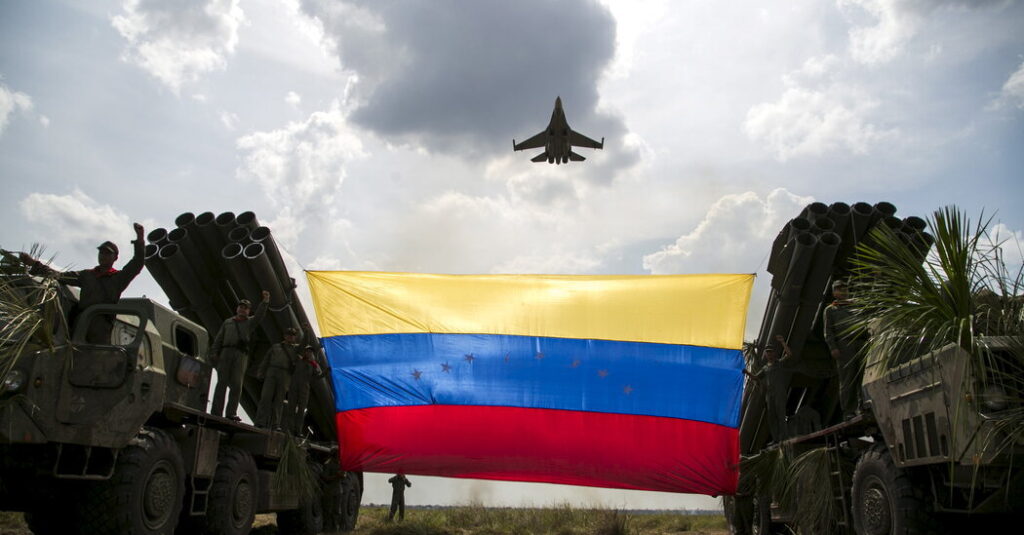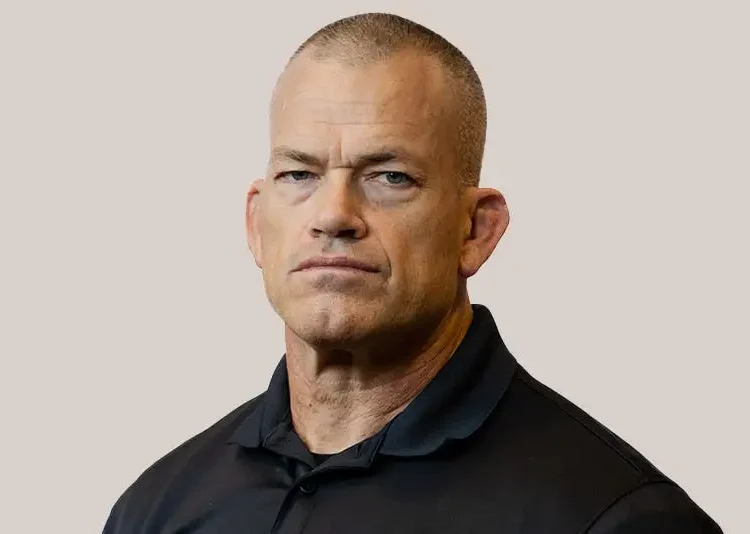Cuban bodyguards, Chinese radars, Iranian gunboats and Russian missiles.
Venezuela’s government has spent billions of dollars over the years on weapons and security services from America’s adversaries as it deepened its standoff with the United States.
Now, President Trump’s threats to escalate the standoff are putting these alliances to the test.
The United States has amassed about 15,000 troops and some of its most modern warships in the Caribbean, called President Nicolás Maduro of Venezuela illegitimate, and declared him the head of a drug-trafficking terrorist organization. On Monday, Mr. Trump made the most explicit connection yet between the military buildup and Mr. Maduro’s tenure, telling reporters he was “not in love” with Venezuela’s leadership.
“We just have to take care of Venezuela,” he added. In recent weeks, Mr. Trump has vacillated between suggesting imminent strikes on Venezuela and engaging Mr. Maduro through diplomacy.
Few in Washington or in Caracas, Venezuela’s capital, expect the Venezuelan military to withstand a concerted assault by America’s military might, if that’s what Mr. Trump chooses.
None of Mr. Maduro’s allies have the ability or political will to increase their support in a way that would fundamentally tip the scales of such a conflict in Venezuela’s favor, according to analysts and people close to the Venezuelan government.
These alliances have always been driven more by economic profit than by strong ideological affinity, though they have played an important role in propping up Mr. Maduro and his mentor and predecessor, Hugo Chávez, during periods of crisis.
Tens of billions of dollars in Chinese loans kept Mr. Chávez and then Mr. Maduro’s governments afloat after Western lenders largely stopped working with Venezuela. Russian oil traders have played a vital role in keeping Venezuela’s main export flowing since Mr. Trump imposed sweeping economic sanctions on the country during his first term.
Iranian engineers have helped prevent the complete collapse of Venezuela’s oil industry during the country’s prolonged economic crisis. And tens of thousands of Cuban doctors and workers provided social services during periods of sustained strikes and mass protests that characterized the early years of Mr. Chávez’s rule.
But Venezuela’s strategic value to its allies has waned, along with a steep drop of its gross domestic product since 2014. Mr. Maduro’s empty coffers have made him a risky borrower and a poor buyer of goods and services.
Recent geopolitical upheaval has put an additional strain on these ties.
The governments in Havana, Moscow and Tehran have been weakened or distracted by economic crisis or wars at home, reducing the amount of resources that they can spare to project power abroad, analysts said.
Many of Mr. Maduro’s allies are pursuing their own high-stakes diplomacy with Mr. Trump and are unlikely to jeopardize domestic objectives to support an ally facing long odds, the analysts said.
That has been particularly apparent in Mr. Maduro’s relationship with President Vladimir V. Putin of Russia. The Kremlin responded to growing pressure on Venezuela by ratifying a vague “strategic partnership and cooperation treaty” last month, but it has refrained from publicly committing any new resources to its main South American partner.
Russian analysts said Moscow’s decision to largely stand by while its allies in Iran and Syria came under attack this year underscored the limits of its geopolitical reach.
An aging Russian cargo plane with a history of trips to countries with a Russian military presence made a stop in Caracas on Oct. 30, according to flight tracking data. But it is unclear if the plane brought additional military equipment or personnel, if it took part in scheduled maintenance work on Russian-made arsenal, or if it was part of a stunt to give the appearance of support at minimal cost.
Another Russian military plane made a similar trip to Caracas in 2019, the last time Mr. Maduro faced an immediate threat of losing power, raising similar questions about its cargo. The Kremlin has not commented on either trip.
“Perhaps they can come in and fix something, fly in some spare parts,” said Ruslan Pukhov, a Moscow-based expert on the Russian arms trade, referring to Russia’s current support for Venezuela. “But I think the main message is that Venezuela is on its own.”
Still, Mr. Maduro’s alliances have bolstered his ability to remain in power by giving him access to foreign markets and to military technology that could inflict losses, if not defeat, on American troops.
While China has refrained from providing new loans to Venezuela, it has kept its market open to Venezuela’s oil. China now buys most of that oil, making it by far the largest contributor to Mr. Maduro’s coffers.
Cuba, which is experiencing an economic collapse, still contributes what is arguably its most valued expertise — counterintelligence.
Since the start of the American military buildup in the Caribbean, Mr. Maduro has increased the number of Cuban bodyguards in his security detail and expanded the work of Cuban counterintelligence officers in the Venezuelan armed forces to reduce the risk of a coup, according to a person close to Venezuela’s military who requested anonymity to discuss sensitive topics.
The person said that Mr. Maduro and his inner circle view Cuban operatives as experienced and incorruptible.
Venezuela’s opposition has repeatedly called on Venezuelan officers to abandon Mr. Maduro to ensure their own survival. Some former U.S. officials have said the military buildup amounts to psychological warfare aimed at creating an split inside Venezuelan security forces.
Current and former Venezuelan officials believe Mr. Maduro’s years of experience rooting out dissent makes such division unlikely.
One of the military options the Trump administration is considering in Venezuela involves sending special forces to try to catch or kill Mr. Maduro, according to multiple U.S. officials. Another more ambitious plan envisions capturing Venezuelan oil fields or critical infrastructure, the officials said.
Military analysts and former Venezuelan security officials said Mr. Maduro’s Russian weapons increase the likelihood that such operations would suffer casualties.
The large Russian weapon systems that are part of Venezuela’s armed forces, such as the S-300 air defense systems and the Sukhoi fighter jets, would likely be destroyed by precision strikes ahead of any American attack, according to the military experts.
American firepower, however, could struggle to neutralize Igla portable surface-to-air missiles, which are considered some of the most potent in their class.
Mr. Maduro claims that his government has 5,000 Igla missiles and that they have been distributed to military units and allied militias throughout the country.
But humid storage conditions and general wear-and-tear means that the number of operational missiles could actually be in the hundreds, according to Mr. Pukhov, the Russian military expert. That number, however, is still enough to pose significant threats to any low-flying aircraft or helicopters that would likely participate in a special forces operation.
“It’s going to be difficult for Americans to just swoop in there without spilling their blood,” Mr. Pukhov said.
Andrew E. Kramer contributed reporting.
Anatoly Kurmanaev covers Russia and its transformation following the invasion of Ukraine.
The post U.S. Military Threat Tests Venezuela’s Alliances appeared first on New York Times.




